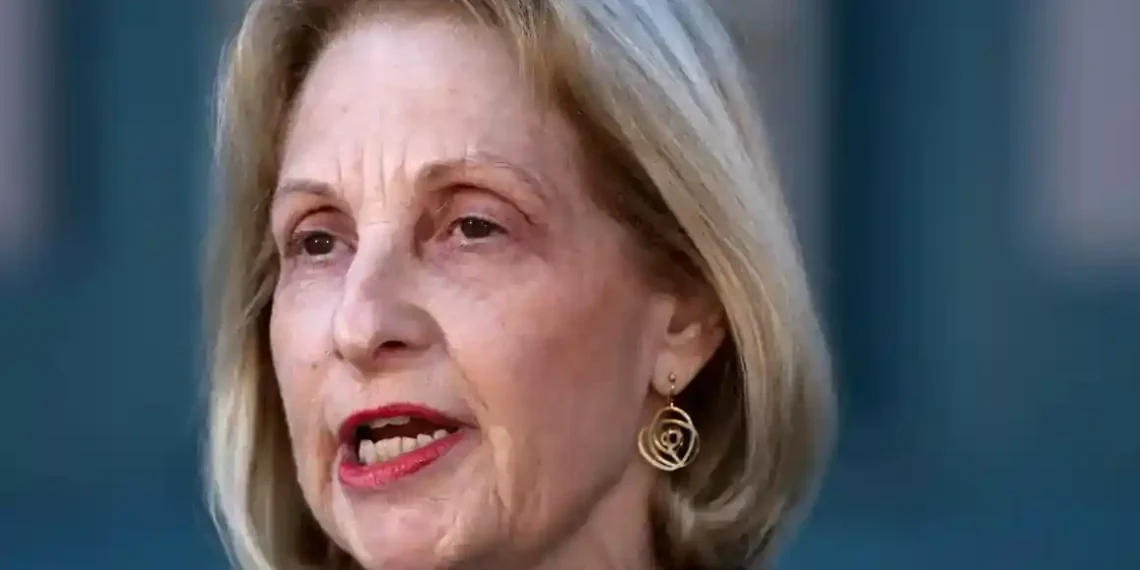Australian universities could lose funding under new antisemitism crackdown plan
July 25, 2025 – 9:57 AM
Australia’s federal government is considering cutting public funding to universities and arts institutions that fail to take meaningful action against antisemitism. The proposal comes as part of a national plan unveiled by the country’s first antisemitism envoy, following a sharp rise in anti-Jewish incidents linked to global tensions over the Israel-Gaza conflict.
The recommendations aim to strengthen efforts across education, immigration, and media, calling for tighter screening of hate speech and extremist content in both public institutions and public discourse.
What sparked the new antisemitism plan?
The report was released Thursday by antisemitism envoy Jillian Segal, who was appointed last year after reports of antisemitic incidents in Australia spiked following Israel’s military operation in Gaza. Segal’s report took nine months to complete and includes dozens of proposed actions to curb what she describes as “ingrained and normalized” antisemitism in Australian public life.
Standing beside Prime Minister Anthony Albanese, Segal stated:
“The plan is not about special treatment for one community; it’s about restoring equal treatment… so every Australian can live, work, and learn safely.”
Key recommendations in the report
Among the most headline-grabbing proposals is an annual “report card” system for universities, rating how effectively they address antisemitism on campus. Institutions found lacking could face reduced government funding. Other recommendations include:
- Stricter visa screening to prevent entry of individuals with documented antisemitic views
- Mandatory Holocaust education in schools to reinforce the consequences of unchecked hatred
- Monitoring media and social platforms to discourage hate speech and false narratives
- Penalties for publicly funded organizations that promote or tolerate antisemitic behavior
University and community responses
Universities Australia, the peak body representing higher education institutions, acknowledged the plan and emphasized the importance of balancing academic freedom with social responsibility.
“Freedom of expression must never be used as a cover for hate or harassment,” said CEO Luke Sheehy.
While many Jewish organizations welcomed the proposal, not all community voices were in agreement. The Jewish Council of Australia, which has criticized Israel’s actions in Gaza, raised concerns about the plan’s scope and intent.
“We’re worried about the emphasis on surveillance, censorship, and punitive funding threats,” said Max Kaiser, the Council’s executive officer. “This echoes policies used in more authoritarian contexts and risks stifling necessary debate.”
A troubling rise in antisemitic violence
According to the report, antisemitic incidents in Australia increased by 300% in the year following the October 2023 conflict in Gaza. Recent incidents include:
- A synagogue in Melbourne set ablaze, forcing worshippers to flee
- Protesters storming an Israeli-owned restaurant, shouting anti-IDF slogans
- Criminal charges including arson, assault, and riotous behavior filed against several individuals
Segal’s former organization, the Executive Council of Australian Jewry, praised the timing of the report, calling it “urgently needed” amid growing fear within Jewish communities.
Wider implications across immigration and the arts
The 20-page plan also extends its recommendations to immigration policies, proposing that visa applications be scrutinized for antisemitic content or past behavior. Additionally, the Migration Act could be amended to allow cancellation of visas based on hate-related conduct.
In the arts sector, public funding would be contingent on upholding anti-discrimination standards. Segal acknowledged the value of artistic freedom but emphasized it should not come at the cost of social cohesion.
“Taxpayer funding should not be used to promote division or spread false or distorted narratives,” the report states.
Government stance and tech platform accountability
During the press briefing, Prime Minister Albanese condemned recent attacks and stressed the need for respectful public discourse.
“There is no justification for these actions,” he said, referencing the restaurant incident in Melbourne. “Violence undermines the very cause it claims to support.”
Albanese also warned about the role of social media in fueling extremism, citing algorithms that push users toward radical content. He referenced a recent controversy involving Grok, X’s AI chatbot, which was accused of generating antisemitic content.
“Social platforms have a responsibility to limit hate speech,” Albanese said. “We need accountability in the digital age.”
Balancing protest rights and hate prevention
Australia, like many democracies, faces a challenge in distinguishing between legitimate political protest and targeted hate. While pro-Palestinian student protests have decreased after administrative crackdowns, Segal’s report warns against antisemitic rhetoric being embedded in campus culture.
Albanese emphasized that criticism of Israeli policy is legitimate but warned that it must not cross into hate against Jewish people.
“In Israel, there is protest — and in Australia, there should be room for diverse views,” he said. “But blaming people for being Jewish crosses a line.”
Final thoughts
Australia’s new approach to tackling antisemitism marks a significant shift in how hate speech and discrimination are addressed within public institutions. With pressure mounting on universities, arts organizations, and tech companies, the coming months will show how these recommendations translate into action.
What’s next? Parliament will likely review the plan’s proposals in the coming legislative session. Public consultations are expected, and institutions have been urged to begin internal reviews immediately.
This article was rewritten by JournosNews.com based on verified reporting from trusted sources. The content has been independently reviewed, fact-checked, and edited for accuracy, neutrality, tone, and global readability in accordance with Google News and AdSense standards.
All opinions, quotes, or statements from contributors, experts, or sourced organizations do not necessarily reflect the views of JournosNews.com. JournosNews.com maintains full editorial independence from any external funders, sponsors, or organizations.
Stay informed with JournosNews.com — your trusted source for verified global reporting and in-depth analysis. Follow us on Google News, BlueSky, and X for real-time updates.













